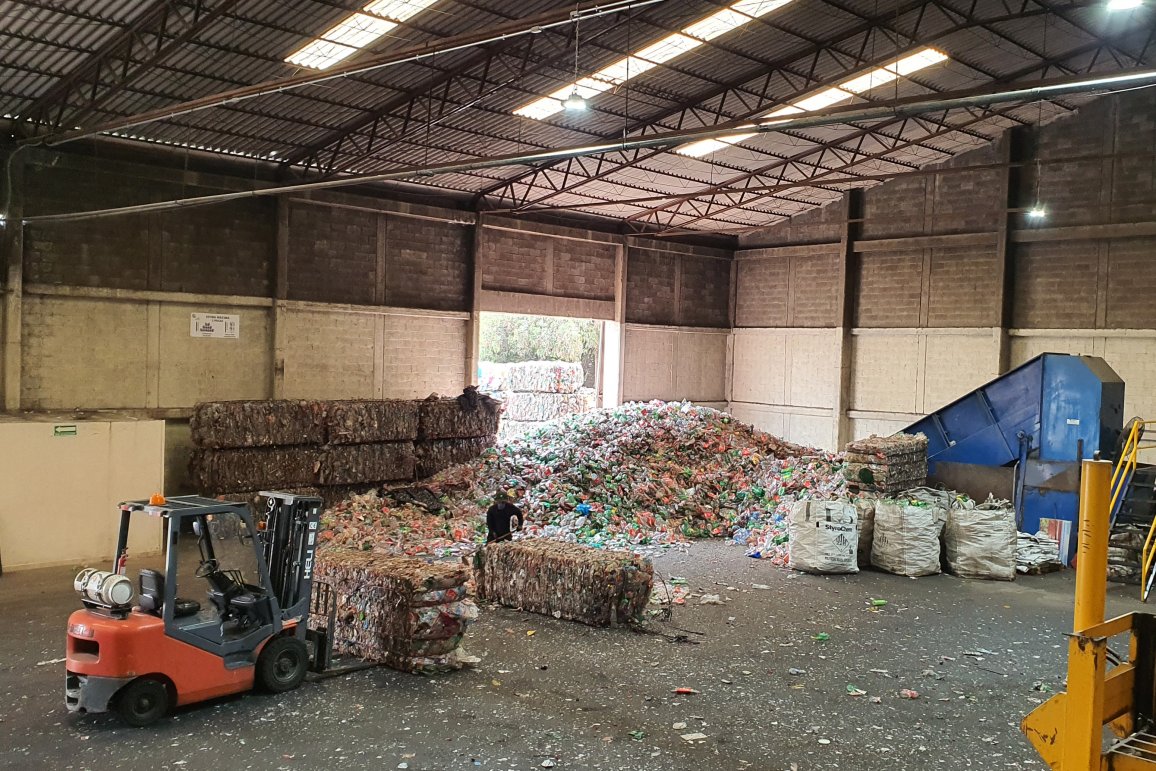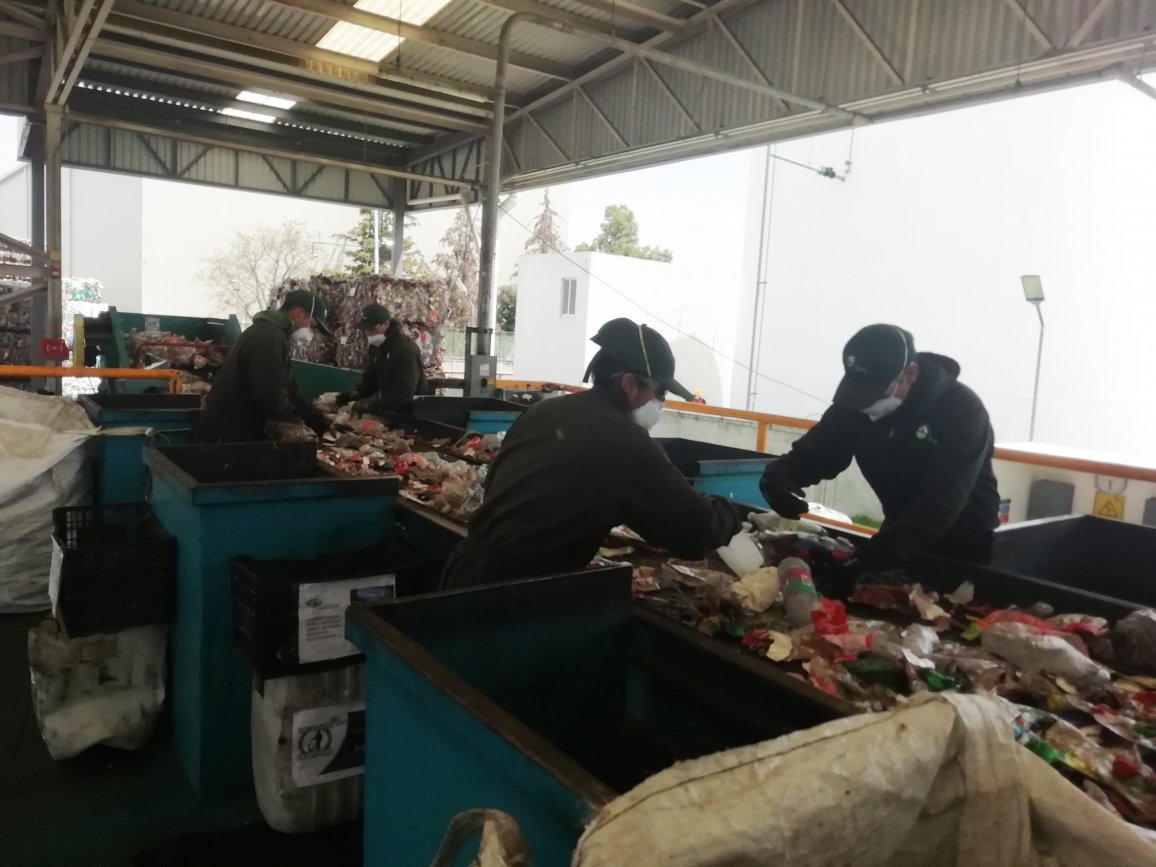PET becoming a valuable raw material in Mexico
Waste recycling rates tend to be low in emerging countries. These lack the collection systems needed to establish a circular economy for secondary raw materials. In Mexico, the recycling company IMER, a joint venture with ALPLA, is successfully bucking this trend.

The PET leaves the collection centres for the IMER recycling plant as single-stream bales.
The packaging plastic PET in particular can be kept in the materials cycle for a long time by means of bottle-to-bottle recycling. However, municipal and private waste disposal in Mexico currently involves next to no waste sorting and recycling. The company Industria Mexicana de Reciclaje, S.A. de C.V. (IMER) therefore has its sights set on the initiative of individuals. Via distribution points, private waste collectors provide the IMER recycling plant in Toluca approximately 65 kilometres south-west of Mexico City with plastic waste. IMER is a joint venture between the packaging manufacturer ALPLA, Coca-Cola Mexico and Coca-Cola FEMSA.
Much waste ends up at landfill sites
In many emerging countries, waste ends up at landfill sites unsorted or it is fly-tipped. In Mexico too, recycling is to a degree still in its infancy. Only approximately ten per cent of recyclable materials remain in the recycling loop. The packaging plastic PET, which is ideal for the circular economy, is an exemplary exception here. Mexico now has a PET collection rate of over 50 per cent, which puts the country mid-table in a global comparison. At 94 per cent, Germany is among the top with regard to this statistic, as it has an established deposit system for PET beverage packaging.
Small-scale entrepreneurs collecting PET
IMER’s PET recycling plant in Toluca has been in operation since 2005. Due to the poor response rate from the public disposal systems, the recycling company collaborates with private PET collectors. IMER pays the small-scale entrepreneurs directly for the materials they supply. The company has set up eight facilities in central and southern Mexico where plastic waste is collected and sorted. These result in single-stream PET for use in the bottle-to-bottle recycling of beverage packaging. The private small-scale entrepreneurs, otherwise known as small collectors, are, for example, neighbourhoods that collect their waste together then take it to one of the centres. The employees of waste disposal companies likewise sort waste before bins and containers are emptied and collect recyclable materials for IMER on their own behalf. Other small collectors collect usable waste in public places and in the streets, then sell it on to the collection centres. IMER works with some 370 of these small collectors. In 2020, they provided approximately two thirds of the material processed at the recycling plant.

Manually sorted PET is single-stream and an in-demand secondary raw material.
Manually sorted and of high quality
As the small collectors sort the recyclable materials manually, the PET they collect for recycling is of especially high quality for those who use it. It is bought by the beverage industry, film manufacturers and the textile industry. In the past, up to 30 per cent of the material was exported to the USA and Asia as it was able to achieve good prices there due to its sorting purity. However, IMER aims to keep the valuable recycling PET in the country. In 2021, Mexican industry recycled 84 per cent of the material domestically and built up annual processing capacities of around 556,000 tonnes of PET. This capacity is forecast to rise to 641,000 tonnes by 2025.
Do you like our texts? Perhaps even so much that you want to use them in your own media? Then please get in touch with us beforehand!
